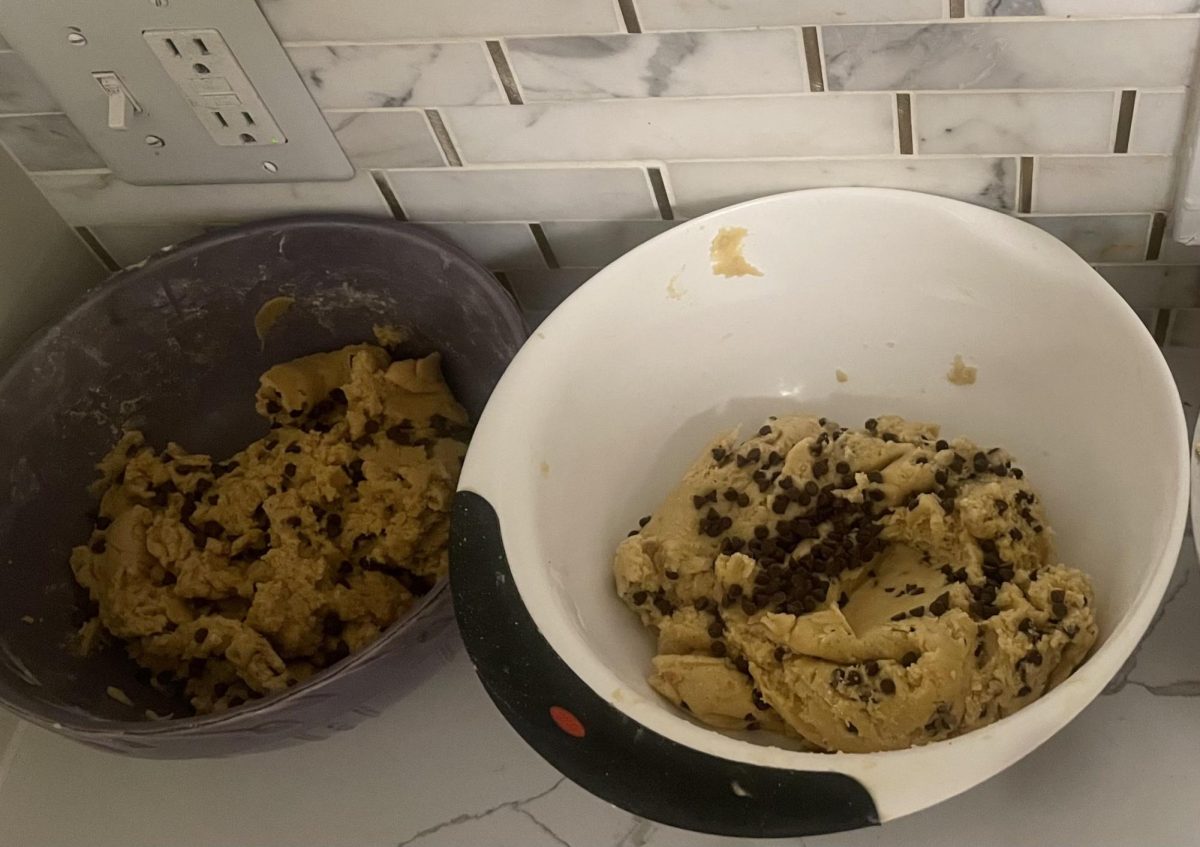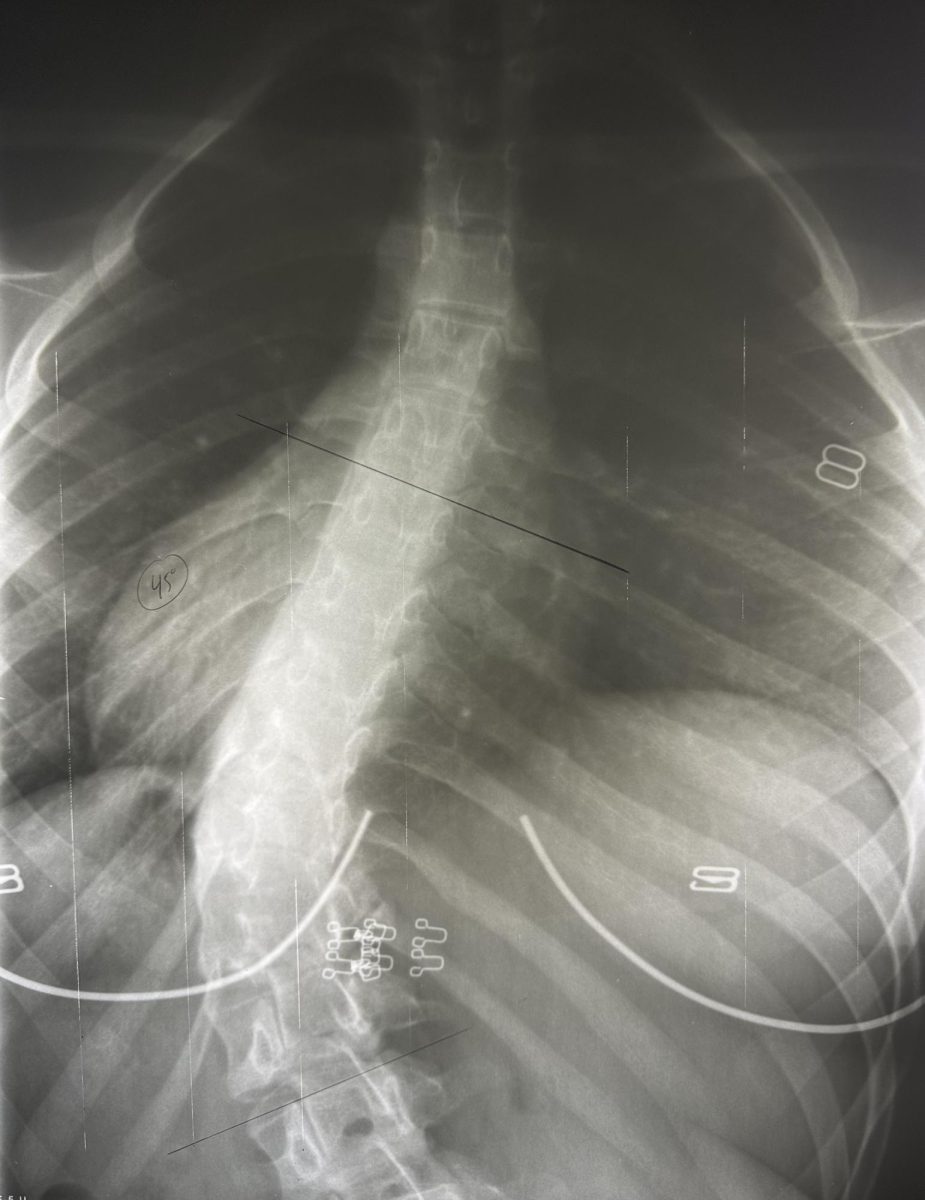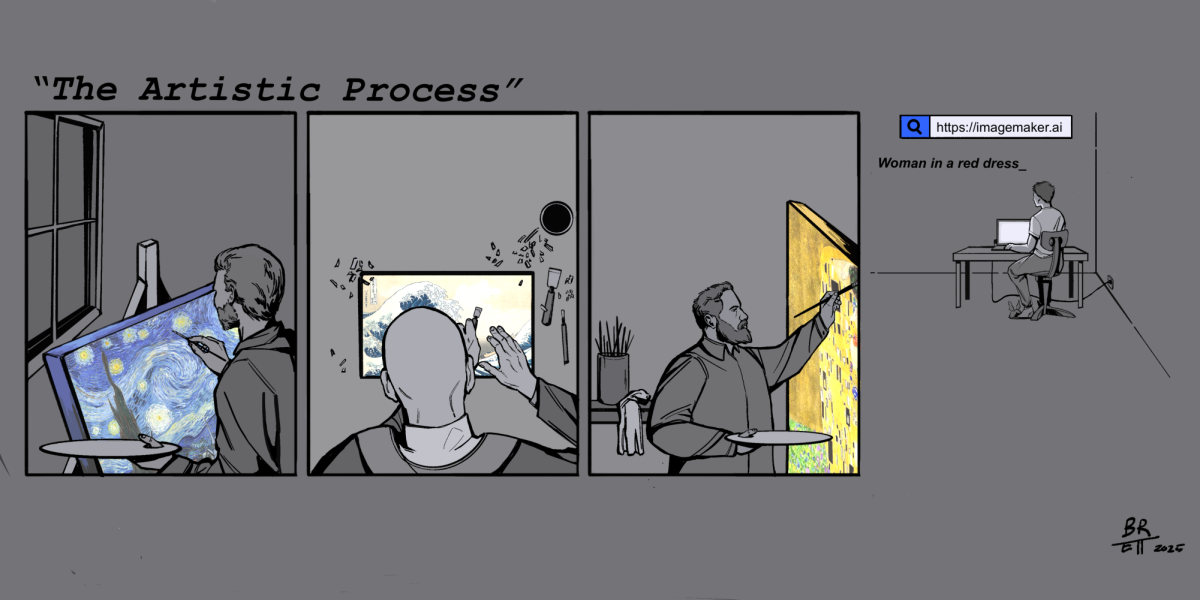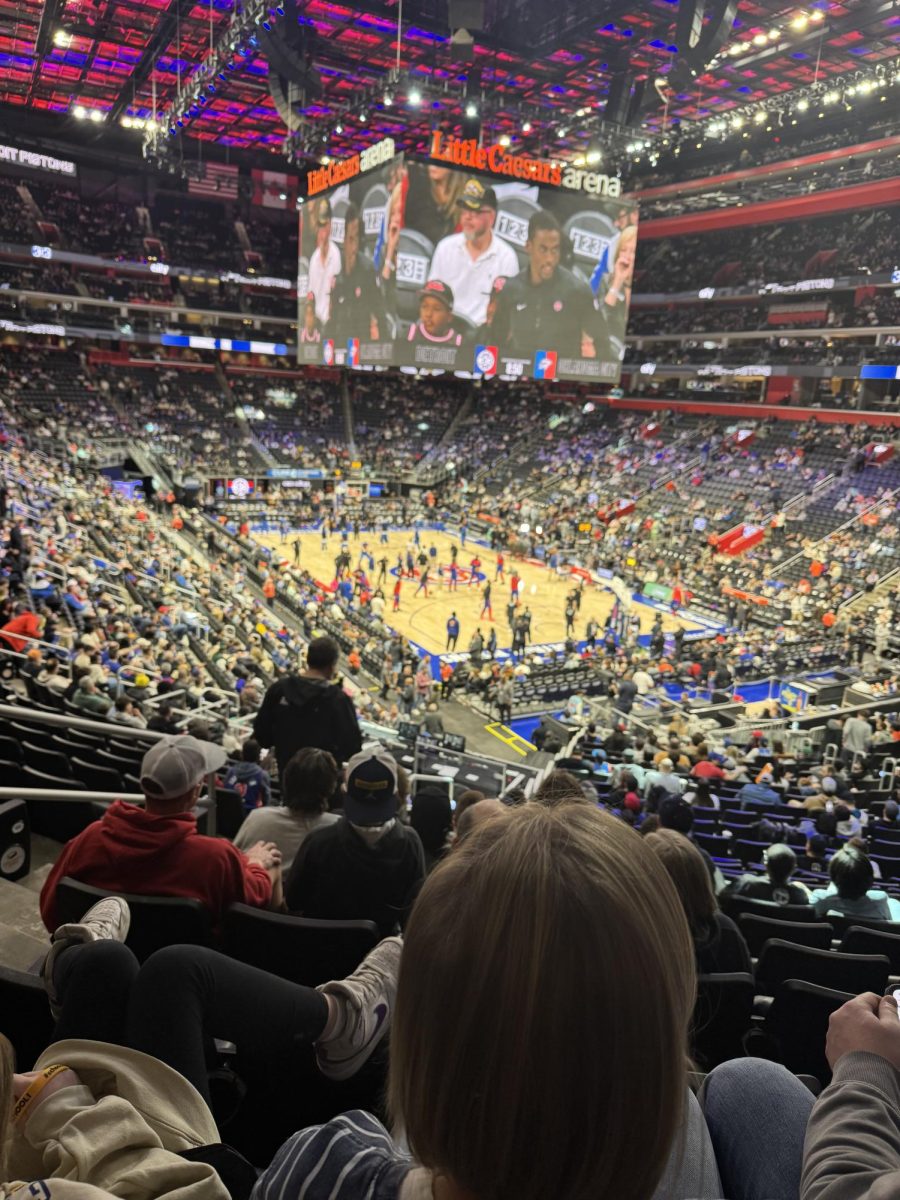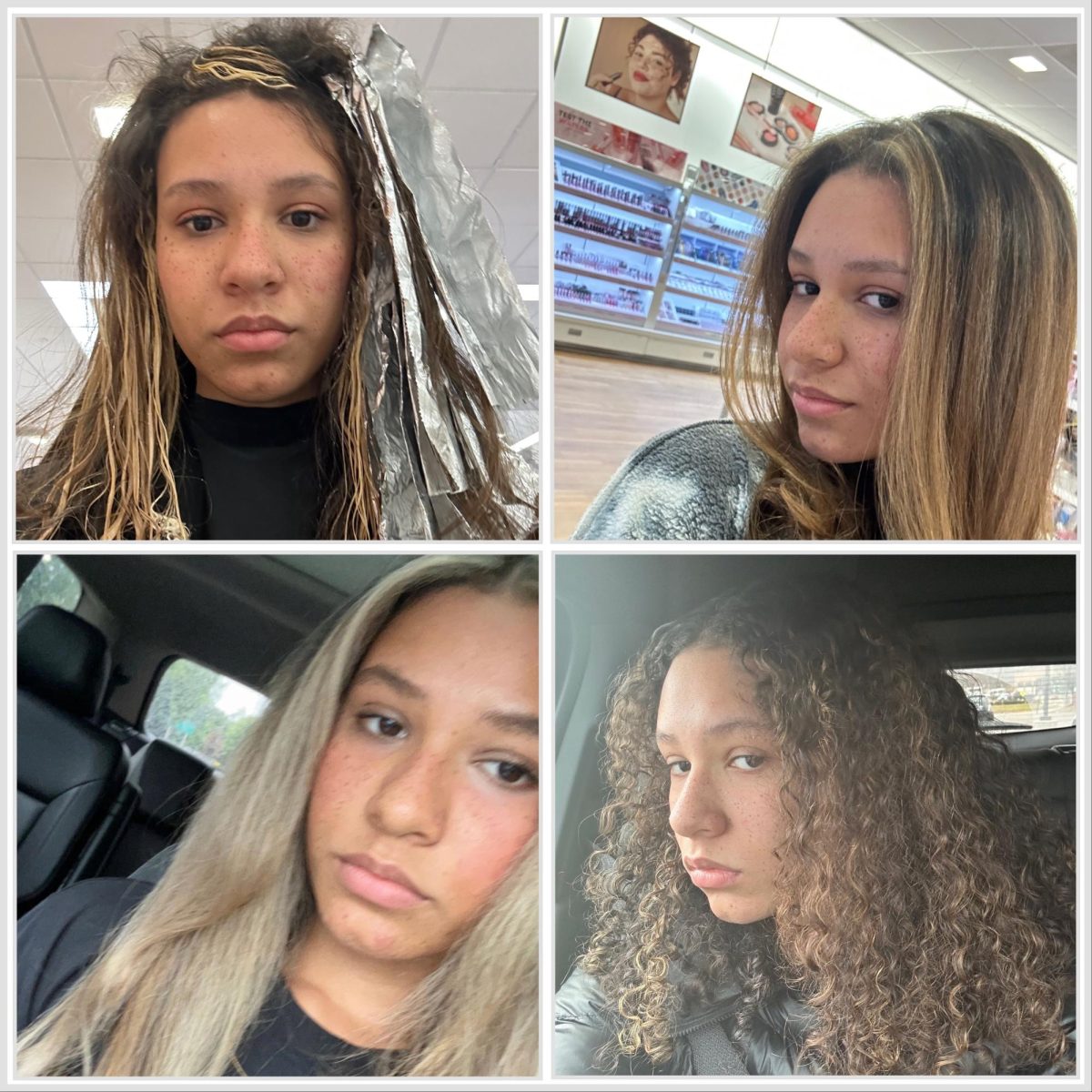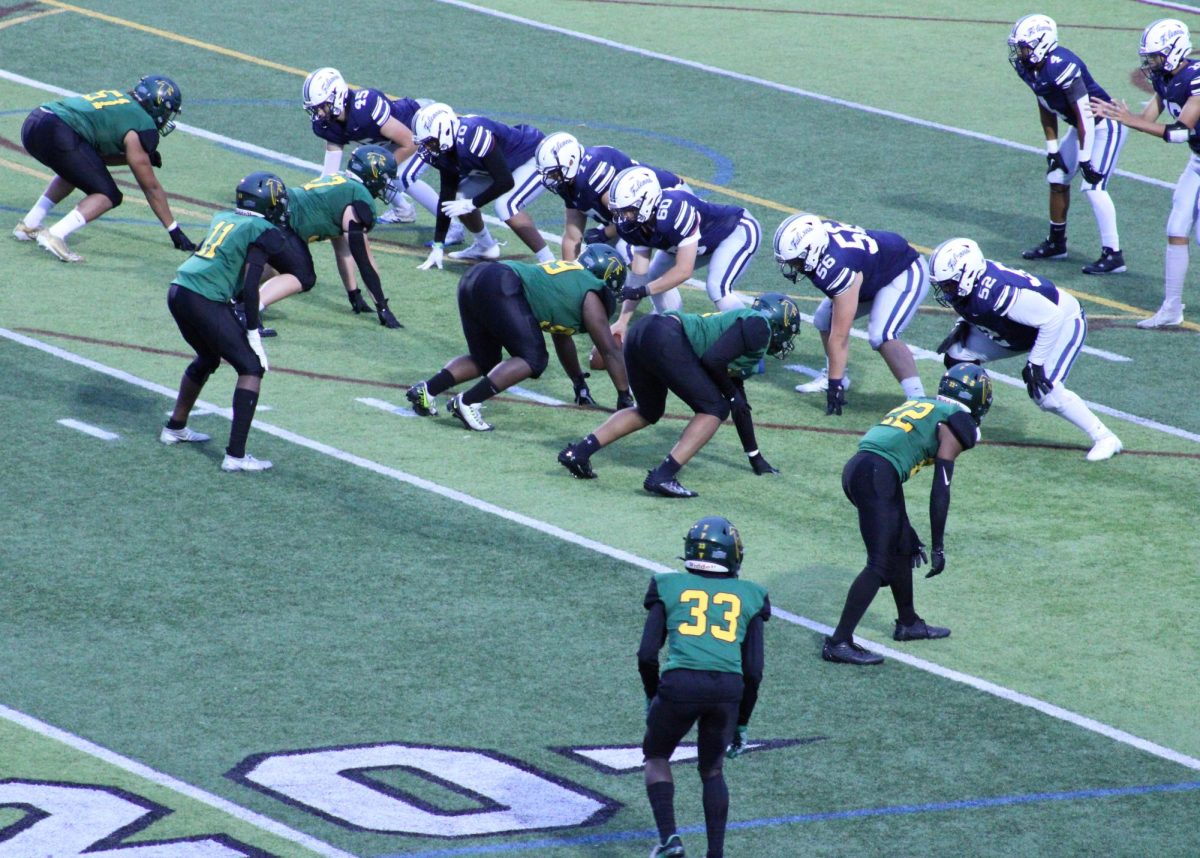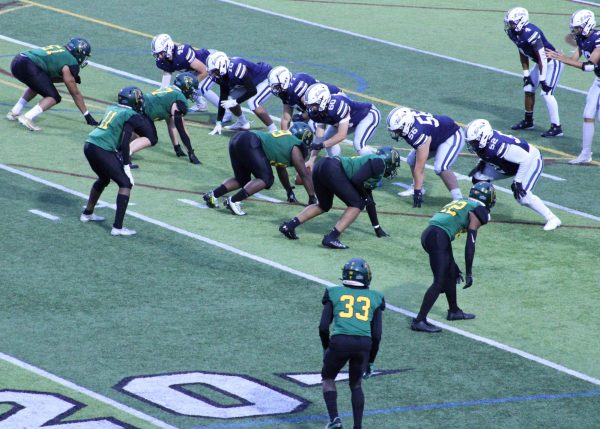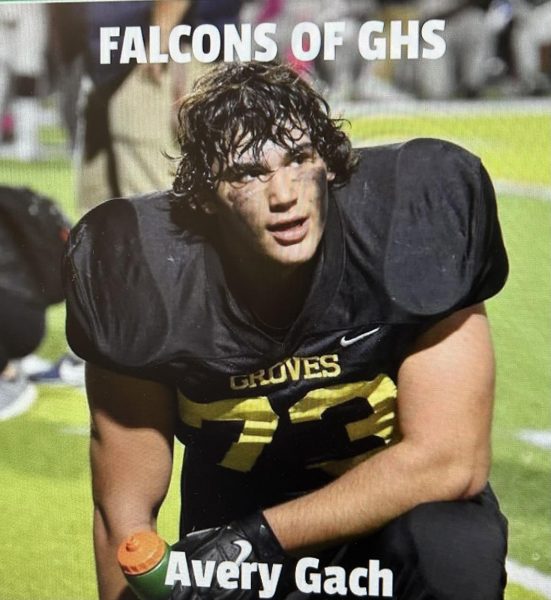Words with Weight
Picture courtesy of Jennifer Gray
Author at her 8th grade graduation
“Looks like someone had a little too much ice cream,” my uncle said as he pinched my stomach. My face turned beet red as I tried to hold back my tears. I was just four years old and this was the first time I experienced body shaming. I can personally say the effects it can have on your health are detrimental. Over the next 11 years, I saw and experienced body shaming, which led me to have insecurities that lead to unhealthy eating habits.
Zero pounds down. I was 12 years old when I joined the track team. I wore a loose black tank top, trying to hide the folds that the material made around my stomach. As practice started, we ran around the school until I could hear my heartbeat pounding in my ears. I couldn’t help but look at the girls the coaches praised; they seemed to be so much prettier than me, simply because they were skinnier than me. The idolization of “the skinnier you are the prettier you are” started to sink in. Later that day, I eagerly walked up to the hurdling coach with the intent of trying hurdling. My track coach then stepped in and said, “Let’s just be honest, you don’t look like the type of person who could do that.” The fact that my coach said this to me highlights how statements of this nature from someone who was not only my coach but a teacher at my school, made me feel uncomfortable by making me feel very conscious of my weight.
I set my mind to losing 50 pounds after years of being looked at differently. I thought deep down my weight was the root of my problem. After experiencing treatment like this, I started to compare my size to others even more than I did before, which led to endless Google searches of “how to lose weight fast”. Pointing out or bringing attention to someone’s weight of characteristics is something that is sometimes innocently done, but it stays in the mind of the person that is being called out. I was always insecure about how I looked, constantly looking in the mirror while degrading myself in my head.
The next day at the track, I ran across the field as fast as I could, trying to look athletic so my coach would let me try hurdling. One after another, the girls I’d been comparing myself to were jumping over the hurdles. When it was my turn, my stomach dropped as I heard the laughter. The sky filled with dark gray clouds as I prayed for track practice to end.
Hoping not to be embarrassed, I jumped through the hurdles the best I could, sighed, looked up, and saw my track coach waiting for me. “Some of us shouldn’t even try. Just go, practice is over,” he yelled in front of the entire track team pointing at the parking lot. This statement made me feel singled out and that I could never be good enough, and I wondered what life would be like if I looked different. I stared down at the ground as I walked to my mom’s car. I stuttered to my mom as she saw the tear roll down my face. My voice was quieted by embarrassment, and emotion was building inside me. I looked out the window of the car as my mom talked to the coach. I felt broken, ugly, and like I didn’t belong.
Pointing out someone’s weight, whether or not it was a blanket statement or not, under any circumstance makes people feel targeted and insecure.
These types of statements are the starting point for body image issues and unhealthy eating habits.
This was the starting point of the countless times I said “I’m not hungry” to my mom.
This was the starting point of being in a bad mood all the time because I was hungry.
This was the starting point of “forgetting to bring lunch to school” with the intent of not eating.
Five pounds down. Over the next few months, I rotated eating 2 oranges a day, a small container of lettuce, and three tortillas made out of eggs. Going on a severe and unhealthy calorie deficit is made to be “common” or what is “expected”. Counting calories is reinforced within schools, sports, and by classmates. People often don’t realize criticizing people for their weight is going to make some look for a way to “fix” themselves. Most people often blame the person with the eating disorder by saying “why don’t they just eat less” or “they should just work out more”, not realizing comments of this nature from classmates, family members, and teachers are what create the issue the majority of the time. I have encountered classmates at Groves, making fun of or talking about someone’s size, not understanding how it can affect people. From personal experience, I would chew gum to suppress my hunger, trying to change what seemed to make people look at me differently. I became scared of calories, almost as much as I was scared of the numbers on the scale.
20 pounds down. I was on my way to my grandparent’s house and at this point, I couldn’t even eat anything without degrading myself. Once I got there, I got so many comments, such as, “you look so much better” and “I knew you’d thin out.”
I wore my old baggy jeans that once fit but now were loose around my waist. I looked in the mirror and my face turned red, knowing no one knew the truth; I looked at the model’s photo trying to be their size. I would draw a marker on my stomach so I could see how much weight I lost. Comments from family or friends at school are fairly common because people don’t realize how a single comment can change how someone feels about themselves. Saying someone looks better now that they have lost weight becomes the motivation for them to keep losing more because of the fear of being put into a position to be made fun of again. Comments about my weight made me feel like I didn’t belong in any groups of friends.
30 pounds down. I was at my cousin’s house on Thanksgiving and couldn’t stomach eating “real food”, so I brought my gallon water jug and sat at the table. I wore sweatpants that were baggy on me, trying to hide the fact that I was 30 pounds down because the attention gave me anxiety. I told my mom not to tell anyone in the car on the way there. As I was sitting by the table, my mom was talking to my cousin, who lost 70 pounds, and said “Hannah has lost 30 pounds, you should show her a picture of you,” my mom said. The fact that I lost weight made tears fill my eyes and a gust of anxiety filled me. Talking about someone’s weight loss or gain is a trigger for many people, including myself. Later on Thanksgiving Day, I went to get food and some of my family members said, “don’t eat that crap, there are too many calories” and I was already struggling with getting a plate, to begin with. I set down the plate and didn’t eat for the rest of the day. “What’s wrong with you,” my cousins said. The constant swirling, deprecating comments made continuously by people I was supposed to trust was draining.
40 pounds down. Every year on my grandma’s birthday we go to the dairy farm, and today was that day. My cousins and I all got in the car. As we drove up to the drive-through window, my heart sank as I thought about the calories. “Hannah, what ice cream flavor do you want?” my grandma said. My stomach started to growl and then I looked through the rearview mirror. I could feel my stomach turning and sat silent. “It’s not going to kill you,” my cousin said. “Are you ok?”
These comments start to make people uncomfortable and make them even worse about having uncontrollable eating habits. They can come in many forms, whether that means eating too little or too much.
50 pounds down. It was my birthday. Ordering food was a struggle. My head would start spinning as soon as I looked at the menu. Today, in particular, my whole family was there. I became overwhelmed with someone else making my food, afraid of how much butter or oil they would use. I glanced at the menu and almost threw up. “It’s not that many calories,” my cousin said. I wanted to cry at the thought of calories, but I justified it by promising myself that I wouldn’t eat for the rest of the day. I knew I never wanted to go back to being the fat kid. Even being 50 pounds down, I still wanted to lose more weight, so I would go to the gym for hours and not eat anything, burning more or equal calories to the amount I ate to justify myself.
Body shaming happens frequently, everywhere. 2 out of 3 women will experience some form of an unhealthy eating disorder because of situations similar to the ones that both Leah and I have experienced. Eating disorders and body insecurity are not something you are born with, but they can develop from insensitive comments. This is why as a community, we need to not only understand that not everyone is born with the same body but also need to encourage others to love themselves. There is not just one type of body that is “exceptional”. We need to understand how similar experiences are and can be the triggers of eating disorders and the effects it has on people. This is a common problem with this society, whether it is in school or online, people put a false image of “working out” and making you look skinny by “burning off” calories. Bringing up calories can be a severe trigger to compensate for working out in an unhealthy way. You never know how your comments could affect someone.
Your donation will support the student journalists of Wylie E. Groves High School. Your contribution will allow us to purchase equipment and cover our annual website hosting costs.

Hannah is a senior at Groves High School. She has been in journalism for two years, and she enjoys writing and taking pictures of her friends and cats....




